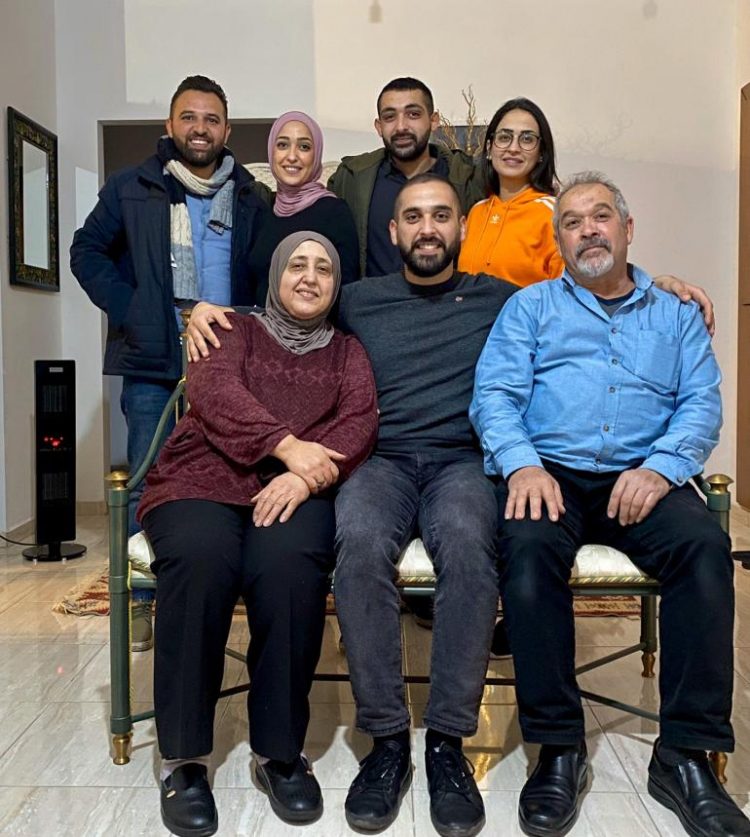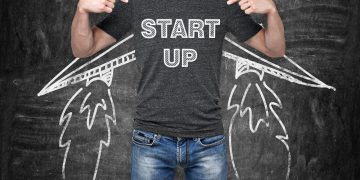For Shireen Abu Akleh, every Palestinian family mattered. One in particular – the Kawamlehs – became close to her.
It happened when the veteran journalist, killed by Israeli forces while she was reporting in Jenin six months ago, decided to go back to university.
In 2020, for her final project for a digital media diploma at Birzeit University, she focused on a young man, Fayez Kawamleh. For close to 22 years, Kawamleh was living a life of fear: he was denied an identity card by the Israeli authorities and could not get a job or travel – not even between different cities in the West Bank – or get married.
His life was at a standstill.
For the project, Shireen got out of her comfort zone, learning to shoot and edit her own footage of the Kawamleh family, superimpose music in her story, and make her own graphics.
“She always wanted to improve herself,” her niece, Lina Abu Akleh, told Al Jazeera. “She wanted to learn new skills and tools as media technology advanced.”
But even as technology advanced, Shireen’s story always centred on Palestinians: their lives, plights, happiness and sorrow. That’s why she chose to focus on Kawamleh.
His story was like that of many other Palestinians who, for unspecified reasons, are denied identity cards by Israeli authorities.
“For 21 years, I have been without an ID. Life throws opportunities at your doorstep, but you can’t take them. The most basic of rights is to be able to get a driving licence, and I can’t even get that. Imagine if I decided to get married,” Kawamleh had told Shireen back in 2020.
Two of Kawamleh’s siblings were able to obtain identity cards, while his older sister and his mother were denied one, just like him. Two of his uncles died abroad and his mother was unable to go to their funerals.
Half of the Kawamleh family lived in the West Bank without identity cards for 22 years, denied by the Israeli authorities [Courtesy of Lina Abu Akleh]
Israel, which issues identity cards for Palestinians in the West Bank, including East Jerusalem, and the Gaza Strip, has practically stopped processing requests for registration and changes of residency status since 2000. That has impinged on Palestinians’ right to family unification as well as their ability to travel and move freely.
“We are six people in the family. We all live in the same house, under the same conditions. They gave half of the family ID cards and denied the rest. The only thing I can think of is that they are trying to push us to leave,” Kawamleh added, referring to Israeli authorities.
The family’s situation pushed them to live in Kufr Aqab, a neighbourhood that is within Jerusalem’s municipal boundary, but on the “West Bank side” of Israel’s separation wall. The area lacks access to municipal and civil services, such as law enforcement, which has made drug trafficking and crime rampant there.
22 years of waiting
Now, six months after Shireen’s shooting, Al Jazeera returned to Kawamleh to speak about his situation.
“My mother, my older sister and I spent about 22 years without any ID. So we were practically confined to the Ramallah area. We finally got the permission to get an ID – but it wasn’t a Jerusalem one, it was a West Bank ID. But still, I am counting my blessings,” Kawamleh said.
 It took more than 20 years for Fayez Kawamleh to get an identity card from Israeli authorities. During that time, he was confined to the Ramallah area [Courtesy of Lina Abu Akleh]
It took more than 20 years for Fayez Kawamleh to get an identity card from Israeli authorities. During that time, he was confined to the Ramallah area [Courtesy of Lina Abu Akleh]
Kawamleh, who was born in the United Arab Emirates, was 13 when he came to Palestine.
His father is a Jerusalem identity card holder. When he applied for family reunification upon his return in 1999 from the UAE, where he had worked for more than 10 years, he was technically entitled to pass on to his family his pre-existing Jerusalem residency.
But Israeli authorities denied three family members ID cards – until about a year ago when through a deal with the Palestinian Authority, they handed out dozens of West Bank identity cards to those living without documentation.
Only after he got his identity card was he able to travel, get a driver’s licence and move around freely. “I have spent the year outside of Palestine doing a lot of travelling,” Kawamleh said. “I am looking forward to my future. I am looking for a job abroad. Everything has changed. My world has expanded exponentially. It’s an indescribable feeling. The first time I travelled abroad, I couldn’t believe it.”
Shireen met Kawamleh through a mutual friend and spent about two years talking to him and his family to highlight the plight of thousands of Palestinians who similarly lived in fear of being caught by Israeli authorities without an identity card, and possibly deported.
“Shireen did not approach us like we were subjects for a case she had for work,” Kawamleh said. “She took a genuine interest in our life, our situation. She spoke to me, my siblings, my mother and father.”
Kawamleh said that over time, Shireen became very close to his family, speaking to him on a number of occasions and keeping abreast of his identity card situation, even after the project ended and she got her diploma from Birzeit University.
“I don’t consider Shireen just a journalist doing a story about me, but also a person who was genuinely interested in my family’s wellbeing. She became close to our family. She used to come to our house. It [Shireen’s murder] was a shock to us all and a loss to all of us – to our entire nation and country.
“Our friendship became stronger because of her work. I feel like I know her family and hers knows mine, and it shows she was a human being – not just an employee merely doing her job.”
Source by www.aljazeera.com





























